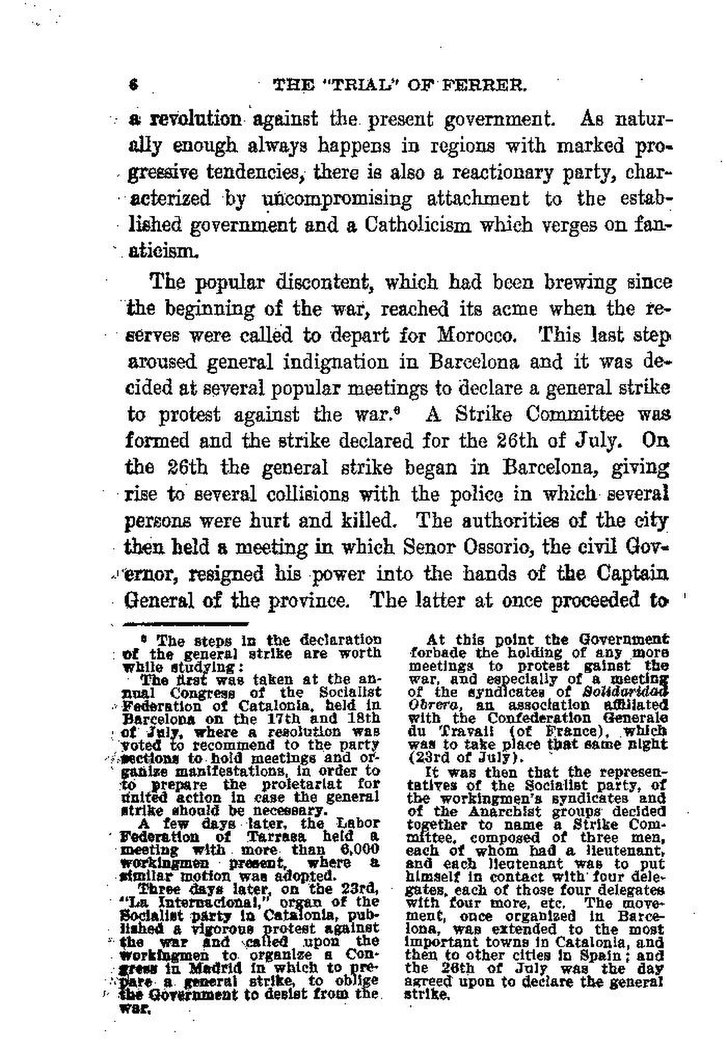a revolution against the present government. As naturally enough always happens in regions with marked progressive tendencies, there is also a reactionary party, characterized by uncompromising attachment to the established government and a Catholicism which verges on fanaticism.
The popular discontent, which had been brewing since the beginning of the war, reached its acme when the reserves were called to depart for Morocco. This last step aroused general indignation in Barcelona and it was decided at several popular meetings to declare a general strike to protest against the war.[1] A Strike Committee was formed and the strike declared for the 26th of July. On the 26th the general strike began in Barcelona, giving rise to several collisions with the police in which several persons were hurt and killed. The authorities of the city then held a meeting in which Senor Ossorio, the civil Governor, resigned his power into the hands of the Captain General of the province. The latter at once proceeded to
- ↑
The steps in the declaration of the general strike are worth while studying:
The first was taken at the annual Congress of the Socialist Federation of Catalonia, held in Barcelona on the 17th and 18th of July, where a resolution was voted to recommend to the party sections to hold meetings and organize manifestations, in order to to prepare the proletariat for united action in case the general strike should be necessary.
A few days later, the Labor Federation of Tarrasa held a meeting with. more than 6,000 workingmen present, where a similar motion was adopted.
Three days later, on the 23rd, "La Internacional," organ of the Socialist party in Catalonia, published a vigorous protest against the war and called upon the workingmen to organize a Congress in Madrid in which to prepare a general strike, to oblige the Government to desist from the war.
At this point the Government forbade the holding of any more meetings to protest gainst the war, and especially of a meeting of the syndicates of Solidaridad Obrera, an association affiliated with the Confederation Generale du Travail (of France), which was to take place that same night (23rd of July).
It was then that the representatives of the Socialist party, of the workingmen's syndicates and of the Anarchist groups decided together to name a Strike Committee, composed of three men, each of whom had a lieutenant, and each lieutenant was to put himself in contact with four delegates, each of those four delegates with four more, etc. The movement, once organized in Barcelona, was extended to the most important towns in Catalonia, and then to other cities in Spain; and the 28th of July was the day agreed upon to declare the general strike.
